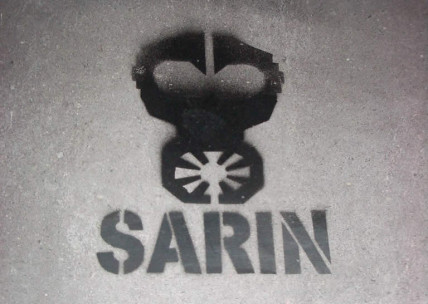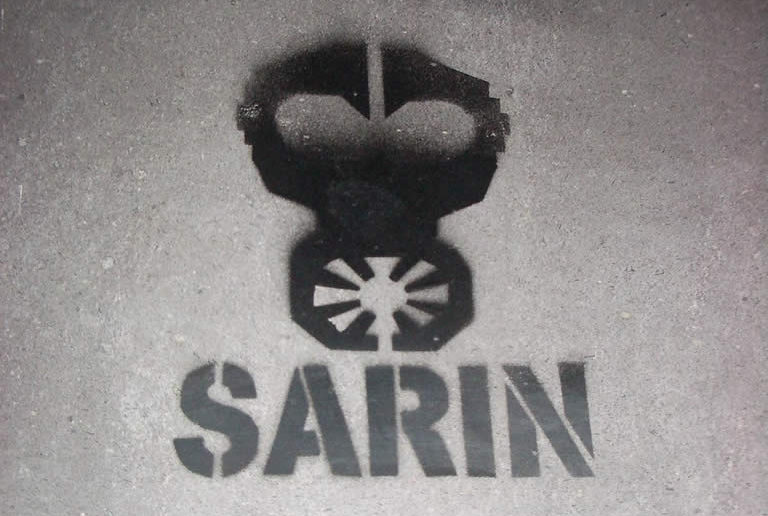
Photograph by Bixentro
Bashar al-Assad has agreed to a Russian proposal to hand over his stockpile of chemical weapons.The move comes on the same day that President Barack Obama will give an address on the potential for U.S. involvement in Syria. Syria Deeply asked Aram Nerguizian, a senior fellow with the Arleigh A. Burke Chair in Strategy at the Center for Strategic and International Studies, to weigh in on the potential success of a weapons-gathering mission.
Syria Deeply: How easy, or how difficult, is it for Syria to hand over its chemical weapons arsenal? Can it happen quickly, and what are the snags along the way?
Aram Nerguizian: It depends on the conditions. The obvious reality is that Syria is in the middle of a protracted civil war. That war, despite progress in the short term with Russia and partners in the U.N. Security Council and a de-escalation in rhetoric, is still going to be there. There might not be any resolution to it in 2013 or even 2014. That being said, if one asks, “Is there a precedent for bringing this under safeguard?” there certainly is.
The Russian example from 1997 to 2012 is an example of a bilateral effort and implies that you can have full cooperation, at least in spirit, between the country that has these stockpiles and the international organizations or partner states that will assist in the disposal, in terms of best practices, safeguards and infrastructure. In the best-case scenarios, you’re looking at an effort based on mutual trust, and that requires time and financial commitments. It does require, in the case of Syria, the cooperation of Bashar al-Assad. And it requires the tacit cooperation of the opposition.
Syria is very different. Civil war and a lack of faith or trust with Assad and the regime, and potential spoilers like Hezbollah, Iran, the Free Syrian Army Islamist and jihadi factions. There needs to be a really strong level of international pressure to lead to any confidence building between Assad and his opponents. On the other hand, Syria does not have a lot of wiggle room to maneuver. There’s very little Assad can say or do, he’s going to have to abide by his sponsors [Russia and Iran]. If he were to oppose, that could create a real problem for Assad with his own regional and international partners.
SD: How certain can we be that Assad will hand everything over?
AN: There’s no such thing as certainty. One can no more say with absolute confidence that Syria will declare all its chemical weapons holdings than one can declare that countries like Russia and even the U.S. don’t have some [chemical]capability. The bulk of the weaponized infrastructure has been under surveillance, be it satellite or human surveillance, for some time. Countries in the P5 have some sense of what the overall posture is. If you have a declaration of forces or inventory that’s out of step with what countries on the P5 or Security Council [are expecting], you’re going to trigger a negative backlash. You’ll notice Obama has not taken military action off the table.
This presents a unique opportunity at the regional and international level for those on each side of the conflict – the U.S. and Russia and Saudi Arabia and Iran and Europe – to push their local allies to de-escalate. You need to really look at this through a longer-term lens where you have international observers through a U.N. Security Council resolution.
SD: Logistically, what would go into collecting the weapons themselves?
AN: It’s not a matter of taking the weapons away, it’s a matter of first cataloguing and making sure what they have handed over corroborates with the metrics the P5 states have on Syria. Then you have to assess whether conditions exist where you can do the disposal on site. Is that easier or less logistically challenging than having to ship overseas? Their cache is arguably nowhere near Russia’s stockpiles in 1997, when they had the equivalent of 40,000 metric tons. Syria doesn’t have anything near that size. The civil war in Syria really impacts the way they’ll [physically]do this. One way to dispose of the weapons is thermal, high-temperature burns. The other is by decomposition or neutralization.
We are talking about something that is deeply hypothetical. We haven’t even reached a place where you have unity [on this]within the U.N. Security Council. Arguably, the Russians have succeeded in putting together a set of events that do have the support of Iran and Assad, or they never would have proposed it in the first place. It’s high-speed diplomacy to make the U.S. stand down. Or it’s a smokescreen, and we could very easily be back at square one.




